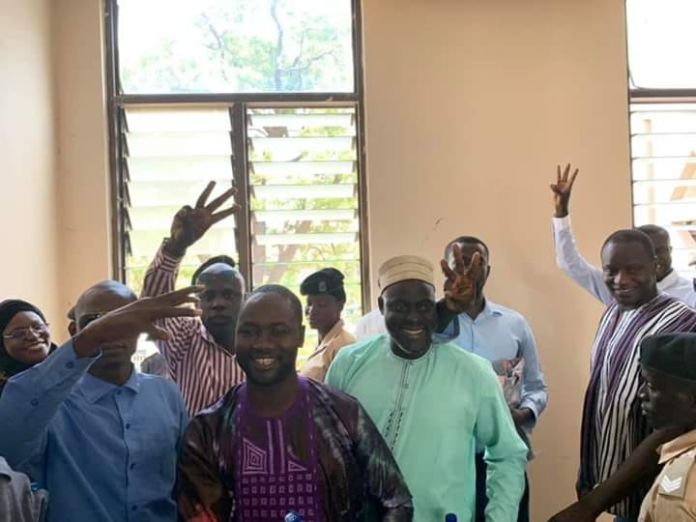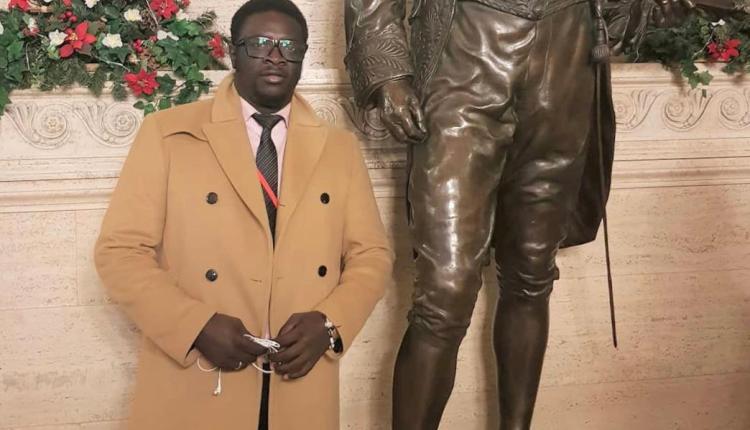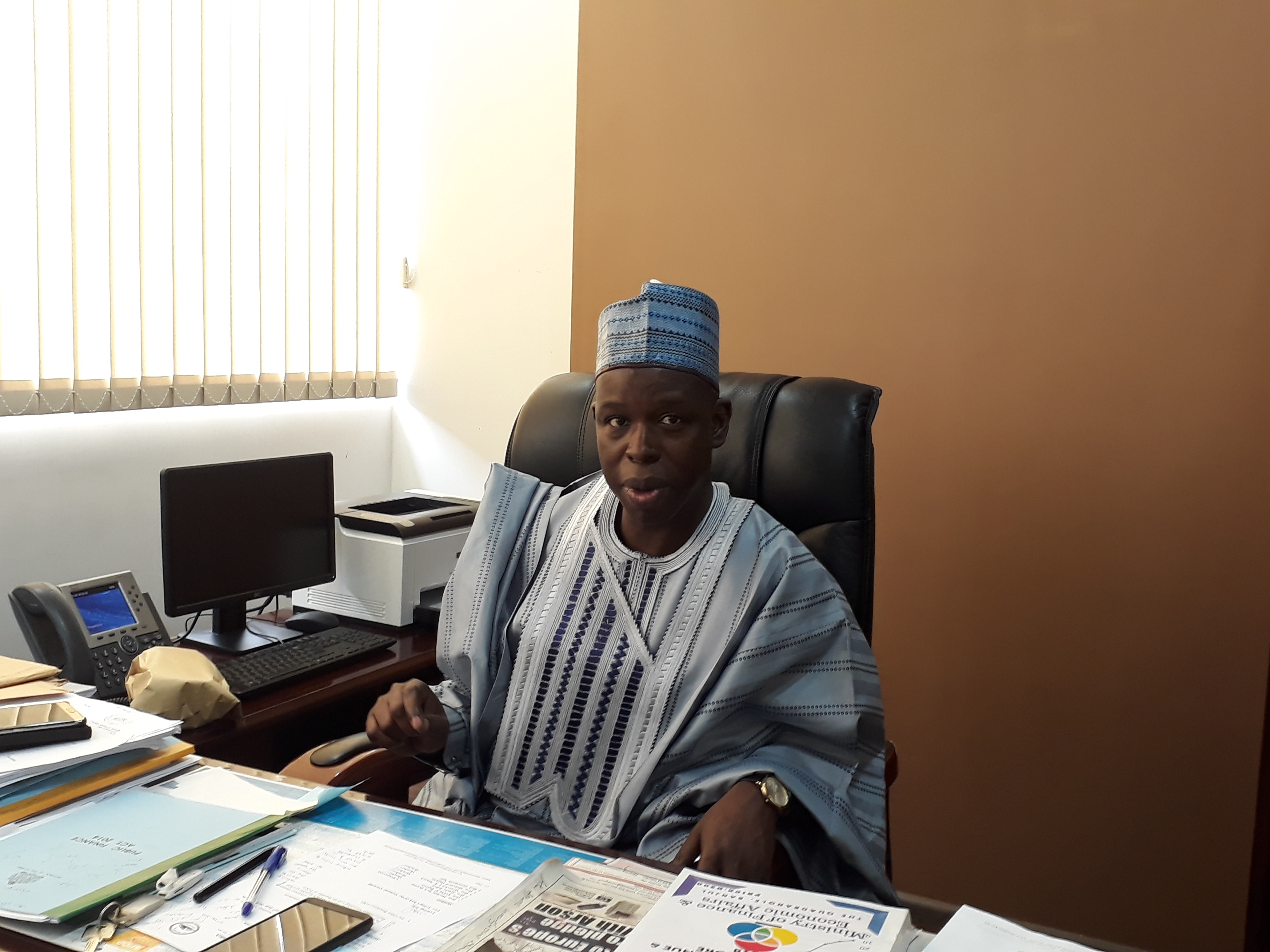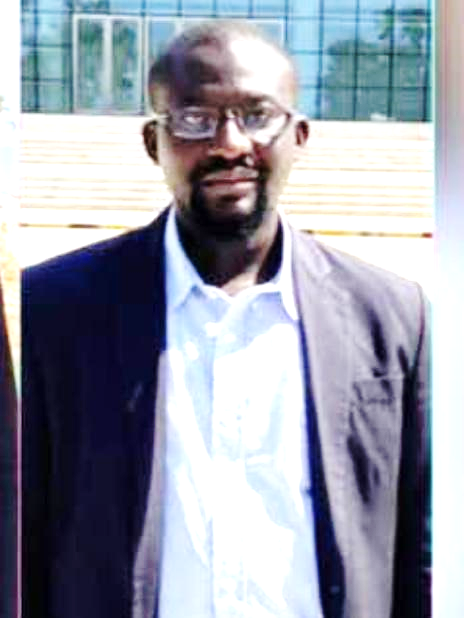By Landing Colley & Binta Jaiteh
Justice Amie Saho Ceesay of High Court on Tuesday adjourned the trial case of Three Years executive to Thursday as they are denied bail.
The eight accused of Abdou Njie, Ebrima Kitim Jarju, Sherrifo Sonko, Haji Suwaneh, Fatim Mballow, Kasim Touray, and Yankuba Darboe are charged with three counts including a life imprisonment.
This comes days after Kanifing Magistrates’ Court ruled it don’t have the jurisdiction to hear the case of the eight.
In court, state prosecutors led by Patrick Gomez quickly moved to apply that the case be adjourned, insisting it was only Monday that they received the file of the case from the police.
“We seek for an adjournment on this matter so as to review the file,” Gomez prayed.
The defence rejected any idea for the case to be transferred while also arguing that there were no proper charges before the high court against the accused persons.
“I wish to submit that there is nothing before this court that should warrant an adjournment,” Rachel Y Mendy, lead lawyer, fired back.
Mendy then moved to ask the court to grant bail to the accused persons after she accused the state of attempting to delay the case.
“The state cannot be allowed to abuse the process of this honourable court,” she said while referring the court to a supreme court ruling in the case of Henry Gabriel last year in which the top court granted bail to a man who was convicted on a manslaughter charge.
The deadlock then took a fresh twist after state attorneys rejected the defence’s argument and called on the court to not grant bail to the accused persons.
“We humbly submit that the state has no intention to delay this trial,” Patrick Gomez said.
He then added: “In relation to whether the offences are bailable, we argue that one of the offences which the accused persons were charged with at the lower court is not a bailable offence, that is why it was transferred to the high court.
“The offence in question is on court three on the charge sheet (rioters demolishing structures) which attracts life imprisonment.”
The state lawyer also said that it is the position of law in The Gambia that where offences attract life imprisonment or death sentences, bail ‘shall’ not be granted.
“In respect to the argument that the Supreme Court set a precedent by granting bail in respect to offences that attract life in jail or death sentences, there is no precedent set by the Supreme Court,” Patrick Gomez argued. He then said the Henry Gabriel case is quite distinct with the case before the high court in that it was ‘bail pending appeal’.
The defence replying on points on law slammed the prosecution’s argument that the Henry Gabriel case was a ‘bail pending appeal’ as ‘misconceived’.
“The issue brought up in the argument of the accused person (Henry Gabriel) was whether the purported charges are bailable. Henry Gabriel was a convicted [but] the Supreme Court granted him bail despite his conviction of manslaughter,” Rachel Mendy argued.
However, defense lead defense counsel for the accused, Racheal Y Mendy argued there is nothing before the court that warrant an adjournment as such the adjournment shouldn’t be accepted.
She also submitted the accused persons have been in custody since 26 of January, 2020, citing section 24 of the 1997 Constitution to avail the accused persons for a fair trial.
R Y Mendy then argued the state knows clearly when the accused persons are properly charged, they should be arraigned before the high court, adding taking them to the lower court shows they are not ready to prosecute the case.





